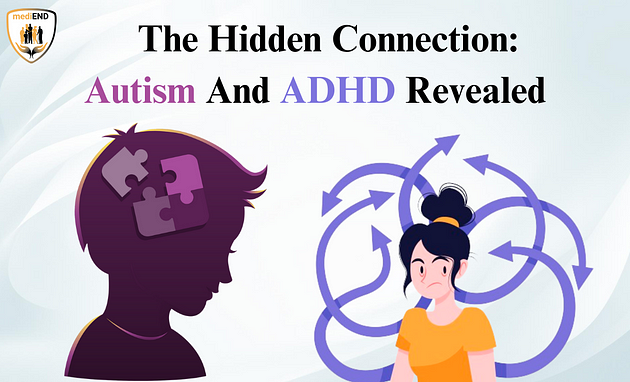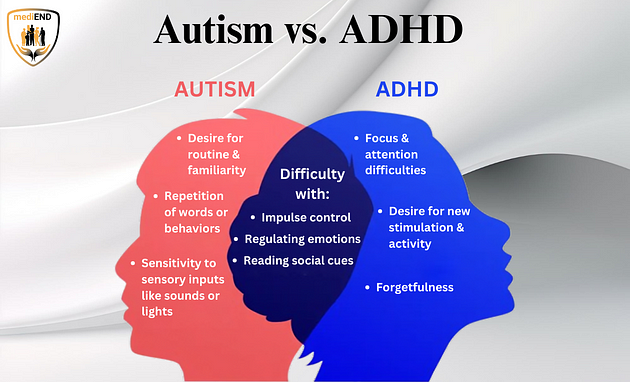The Hidden Connection Autism And ADHD Revealed
Autism and ADHD are two common neurodevelopmental disorders that affect millions of individuals worldwide. While they are often considered separate conditions, recent research has shown a strong connection between the two. This article aims to explore this fascinating link and its implications.
According to the Centers for Disease Control and Prevention (CDC), autism affects about 1 in 59 children, while ADHD affects 9.4% of children in the United States. Both disorders can have a significant impact on individuals and society, making it crucial to understand their connection.
Understanding Autism and ADHD
Individuals with autism and ADHD may exhibit overlapping symptoms and behaviors, making it challenging to differentiate between the two disorders. This can lead to misdiagnosis and delayed autism treatment. Therefore, it is essential for healthcare professionals to thoroughly assess and evaluate individuals to provide an accurate diagnosis.
Commonalities and Differences Between Autism and ADHD
Autism and ADHD share some commonalities, but they are distinct disorders with their unique characteristics and challenges. Both disorders are neurodevelopmental in nature and can significantly impact an individual’s daily functioning. They may also co-occur in some cases, further complicating diagnosis and treatment.
Distinct Features and Challenges
Autism is typically characterized by difficulties with social communication, repetitive behaviors, and sensory sensitivities. On the other hand, ADHD is often associated with hyperactivity, inattention, and impulsivity. These distinct features can present unique challenges for individuals and may require different treatment approaches.
Potential for Misdiagnosis
The overlapping symptoms and behaviors of autism and ADHD can make it difficult to accurately diagnose each disorder. This can lead to misdiagnosis and potentially inappropriate treatment. It is important for healthcare professionals to carefully evaluate an individual’s symptoms and consider both disorders when making a diagnosis.
Theories of the Connection
Numerous theories have been proposed to explain the connection between autism and ADHD. One of the leading theories suggests that genetic factors may play a significant role in the development of both disorders. Studies have shown that individuals with a family history of autism or ADHD are more likely to be diagnosed with one or both of these conditions.
Impact on Individuals and Families
Individuals with autism and ADHD face unique challenges in their daily lives, as well as their families. These disorders can impact individuals in various ways, such as difficulties with communication, social skills, and behavior. In addition, co-occurring conditions such as anxiety and depression can further complicate the management of these disorders.
Challenges and Support
Living with autism and/or ADHD can be overwhelming for both individuals and their families. The lack of understanding and societal stigma surrounding these disorders can add to the challenges faced. Families may struggle to find appropriate support and resources, leading to feelings of isolation and frustration.
It is important for families to have access to information and support services to help them navigate the challenges of living with autism and ADHD. This could include therapy, educational resources, and support groups for both the individual and their family members.
The Importance of Early Diagnosis and Intervention
Early diagnosis and intervention are crucial in managing the impact of autism and ADHD on individuals and families. This allows for early identification of needs and the development of personalized treatment plans to address the specific challenges faced by each individual.
Conclusion
In conclusion, the connection between autism and ADHD is a complex and fascinating topic that requires further exploration and understanding. While these disorders share commonalities, they also have distinct features that can impact individuals and their families in different ways.


Comments
Post a Comment